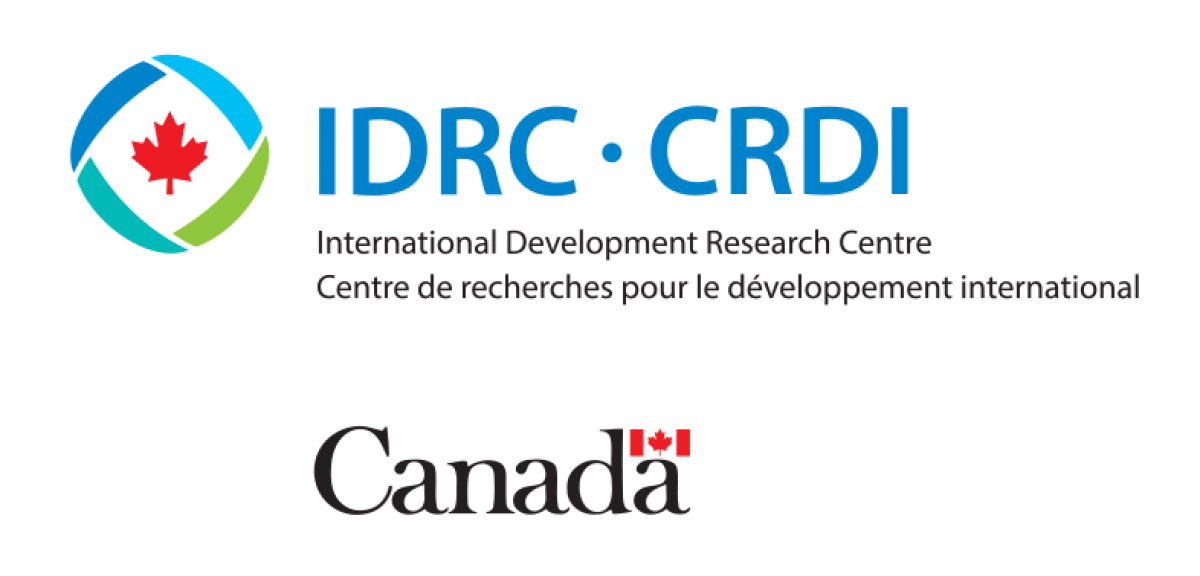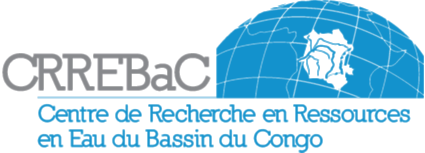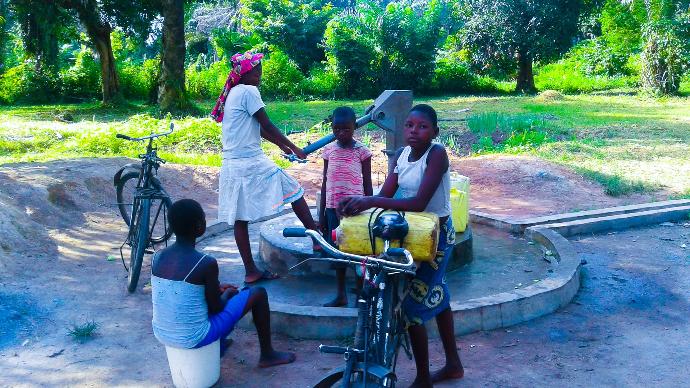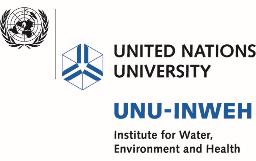Presentation of CEMiC
Presentation of CEMiC
The project on “managing interactions between migration and conflicts due to climate change and water with a view to strengthening the resilience of communities in the Congo Basin”, aims to contribute to the socially equitable development of the population of the Basin. of Congo and strengthen the resilience of communities to climate change by addressing the links between migration and climate and water conflicts.
It is a research and support project for sustainable water resources management policies implemented in the Congo Basin by the Congo Basin Water Resources Research Center (CRREBaC) of the University of Kinshasa. in collaboration with the United Nations University – Institute of Water, Health and Environment (UNU-IWHE); with funding from the International Development Research Center.
The research problem is framed around the Climate-Water-Migration and Conflict nexus in the Congo Basin. The research paradigms that encompass this issue in the Congo Basin are as follows :
From a hydrological point of view, the Congo Basin generates a monthly flow of more than 108,000 Mm3 at its outlet, which represents approximately 40% of the total flow of the African continent (Tshimanga, 2012). It thus offers opportunities for the production and satisfaction of numerous goods and services, including agriculture, fishing, hydropower, water supply, transport and the maintenance of aquatic ecosystems and the environment. However, the regional context of environmental/climate change poses a huge threat to the Congo Basin, whose population already faces problems posed by years of chronic socio-political conflicts, widespread poverty and continued environmental degradation.
In the Congo Basin, more than 60% of the population lives in rural areas and depends directly on the watershed's resources for their livelihood. Women represent more than 73% of economically active people in agriculture and produce more than 80% of food crops (Brown et al, 2011; UNECA, 2012). Therefore, they have the burden of the economy for household subsistence. Overall, the basin has the potential to play a leading role in regional cooperation to reduce poverty, while providing livelihood and income opportunities for communities. In principle, the Congo Basin countries hold water in abundance compared to other African countries, but they also have limited access to water services such as drinking water supply and sanitation. , hydropower, navigation, irrigation and food security. Agriculture is rainfed and depends on seasonal climate variability. This is largely due to lack of infrastructure, weak technical and human capacity, and poor governance, which translate into little or no social resilience to address the impacts of climate change and its socio-economic effects. ecological. On the one hand, the Congo Basin offers potential to support regional cooperation for the management of shared water systems; on the other hand, this resource is at the origin of conflicts between competing uses. The theme of "Water War" is frequently highlighted in literature and debates in the Basin (People's Dialogue, 2016) as one of the many facets of emerging conflicts - exacerbated by the impacts of climate change and new modes of migration.
The drastic drop in the water level of Lake Chad is particularly worrying and is an illustration of this. The lake has lost around 90% of its surface area over the past four decades. The migration of riparian pastoralist communities from the Lake Chad Basin to the Congo Basin is an important emerging migration route in the region. In addition, the expressed needs for the transfer of water from the Congo Basin to support and revitalize the drastic drop in Lake Chad water levels are also at the heart of intense regional debates, which imply the concept of "war water" or socio-political conflicts linked to water. For example, the mass movements of pastoralists from the northern region through the Mbororo nomadic lifestyle (Kabamba, 2015), have attracted significant attention in recent decades. These communities entered the northern Congo Basin countries - DRC, Central African Republic (CAR) and Cameroon - and multiple episodes of conflicts over land and water were recorded (UNEP, 2011).
Migratory movements have increased over the last two decades due to several direct and indirect factors and more often linked to the degradation of natural resources or climate change (African Union, 2008). This has the effect of replacing conventional trends in human mobility with new patterns of migration driven by communities' needs for access to land and water resources. This results in 13 new types of conflicts emerging. This trend weakens the balance and cultural and customary exchanges established between non-native (nomadic) and indigenous (sedimentary) communities. It has an impact on traditional mediation mechanisms, by promoting violent conflicts between farmers and breeders. Land tenure, legislation, customary and formal rules and regulations in cross-border areas do not favor permanent settlement, nor do they cover the complexity arising from new migratory routes. For the DRC, the deterioration of security in the eastern part of the country is further exacerbated by problems of pastoral migrations apart from politico-military complications. In 2008, the African Union Peace and Security Council (African Union, 2008) debated the issue of growing migration patterns, highlighting elements that need to be taken into account to resolve the problem of pastoral migration (including other groups, not limited to Mbororo).
From the above, the need for an in-depth understanding of the “Climate-Water-Migration-Conflict” nexus becomes relevant. The emergence of new migratory pathways driven by various direct and indirect factors requires a comprehensive understanding of regional and sub-regional dimensions in order to define a comprehensive approach and solutions adapted to the environment to ensure human security, peace and well-being . The hydro-climatic dimensions of the region are multifaceted, complex and difficult to integrate, particularly in situations of data scarcity and where resource availability is non-stationary at different scales. These challenges are accentuated in the context where social, economic and political conditions have not recognized the need for up-to-date hydrological and climatic information, or where the resources necessary to collect and interpret this data are not available (Tshimanga, 2012).
It is in this context that the Congo Basin Water Resources Research Center (CRREBaC) in collaboration with the United Nations University, Institute of Water, Health, Environment (UNU-IWHE) and the Center for Research for International Development (CRDI) initiated a research and support project for sustainable management of water resources in the Congo Basin. This research project aims to highlight the interactions that exist between migration and conflicts due to water and climate change with a view to highlighting alternatives for the resilience of local communities in the Congo Basin. The main research questions that this project must answer are as follows :
- What are the emerging spatio-temporal trends in water-related conflicts and migrations at the regional and Congo Basin level? How to best evaluate and predict them ?
- How do new patterns of conflict and migration impact human development, particularly vulnerable groups, and how can these impacts best be assessed ?
- What are the gaps and challenges in addressing the social, economic and political implications of water-related migration for host countries and countries of origin - including transit zones - and what are the potential gender-focused solutions to adaptation and conflict resolution
?
The specific research objectives revolve around three main axes, namely: research (objectives 1, 2 and 3), capacity building (objective 4) and dissemination (objective 5). These objectives consist of :
- Improve knowledge of hydro-climatic and environmental change factors that influence spatio-temporal patterns of migration and climate- and water-related conflicts in the Congo Basin ;
- Improve understanding of indigenous and local knowledge, socio-economic, cultural and political factors that influence spatio-temporal patterns of migration and climate and water-related conflicts in the Congo Basin
;
Improve climate change adaptation and conflict resolution strategies in Congo Basin communities by identifying and evaluating the most effective and affordable gender-responsive community initiatives ; - Strengthen the capacities of stakeholders on climate-water-migration-conflict issues in the Congo Basin with a view to creating the necessary conditions for the adoption of sustainable strategies for adaptation to climate change and conflict resolution taking into account the specificities of gender ;
- Strengthen political commitment and collaboration between institutions and between researchers, policymakers, international agencies and communities by improving dialogue and awareness on climate and water-related migration and security in the Basin. Congo.
Research
- Spatio-temporal trends in hydro-climatic variability and associated vulnerability are established ;
- Basic information to support local climate change adaptation strategies and climate resilient development is available. This information will contribute to the overall planning of the implementation of the Sustainable Development Goals (SDGs) and targets - specifically, SDGs 5 (Gender), 6 (Ensure the availability and sustainable management of water and sanitation for all), 10 (Inequality), 13 (climate) and 16 (peace) ;
- Evidence on the interactions between climate, water, migration, and conflict (CEMiC) and their implications for people living in the Congo Basin is established ;
- Knowledge gaps and intervention policies are identified and documented ;
- New knowledge about indigenous peoples, as well as the socio-economic, cultural and political factors that influence the spatio-temporal patterns of climate and water-related gender migration pathways and conflicts are generated in the Congo Basin ;
- The areas of intervention that will fuel future development actions aimed at climate resilient development are clearly and specifically defined ;
- Des solutions intelligentes pour l'adaptation et la gestion des rôles, des responsabilités et des besoins des genres et des jeunes dans les voies migratoires émergentes de la région sont mises en oeuvre ; • Les stratégies d'adaptation spécifiques au genre et les mécanismes de médiation liés à la migration pour le bassin du Congo sont testées et évaluées.
Capacity Building
- Civil society, government, communities and scientists are empowered to formulate and implement solutions to the stress of climate change and the water crisis in the Congo Basin, paying particular attention to the drivers and the impacts of migration and conflict ;
- Stakeholders are empowered to plan solutions for water crisis and migration scenarios while contributing to strategic policy interventions ;
- Improved governance and the best decision-making processes linked to the institutional framework for individuals and groups in vulnerable situations are implemented. Improved governance and the best decision-making processes linked to the institutional framework for individuals and groups in vulnerable situations are implemented. implemented.
Dissemination, communication and sharing of knowledge
- Increased collaboration and sharing of experiences in the Congo Basin through interactions between researchers, decision-makers, communities and other stakeholders are established ;
- Awareness raising for development resilient to climate change in the Congo Basin is organized ;
- New collaborations between state and non-state institutions and actors in the Congo Basin are formalized ;
-
Political commitment to support climate-resilient development in the Congo Basin is strengthened.
CEMiC Project Activities
CEMiC Project Documents





